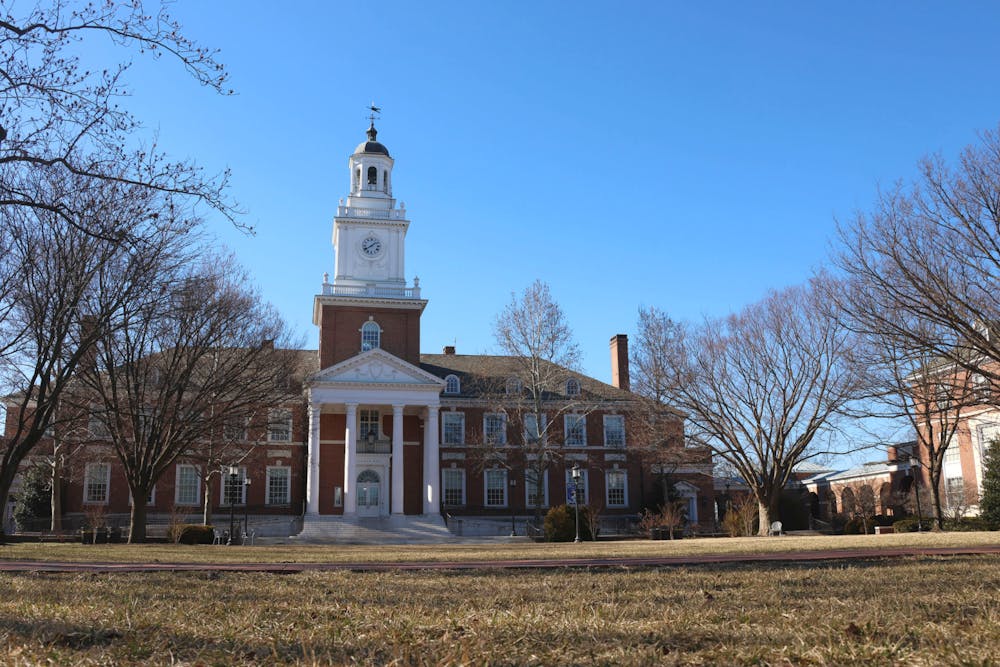The Committee on Student Elections (CSE) announced the results of the 2023–2024 Student Government Association (SGA) Executive Board and class council elections on the evening of March 15, three hours after voting closed. Out of the five executive board positions, only vice president was uncontested.
The 2023–2024 SGA Executive Board will consist of sophomore Ryan Chou as president, sophomore Jackson Morris as vice president, freshman Amy Li as secretary, junior Jenny Chen as treasurer and junior Shalala Leny as chair of programming.
The elected senior class president is Rachel Huang, and class senators are Mufasa Cruz Moreno and Kelly Huang. The elected junior class president is Resham Talwar, and class senators are Divine Madubike, Brandon Benjamin and Molly Kuzma. The elected sophomore class president is Stone Meng, and class senators are Shruti Tyagi, Oluwakemi Abiodun, Srigouri Oruganty and Adithyan Neelmana.
Two major changes were made during this year’s SGA election: SGA added the chair of programming position to the Executive Board, and CSE employed a hybrid voting model. Student could vote online or at one of the four in-person polling booths across campus.
Additionally, the Hopkins Student Organization for Programming election occurred concurrently with the SGA election on the same ballot. Junior Meggie Li was elected as president and sophomore Shreya Joshi as vice president. Both positions were uncontested.
CSE reported a total of 1,453 voters out of approximately 5,000 eligible voters this year.
Among the four candidates for executive presidency, Chou won with 41% of the votes, followed by freshman James Yoon with 34%, junior Clement Adedeji with 22% and freshman Nver Saghatelyan with 3%.
In an email to The News-Letter, Chou expressed his appreciation for the voter turnout.
“We are seeing an uptick in student engagement with the election process as a result of SGA’s growing publicity in recent years as well as improvements to the election process by the CSE,” he wrote. “The high competition, especially for Executive branch positions, also drew significant attention to the elections.”
Chou noted that improvements in election processes included banners and flyers, in-person voting options and collaborations with the SGA Communications and Marketing Commission.
He also commented on SGA’s structural transition, which posed logistical challenges for the election process. Chou emphasized that his top priorities are to enhance SGA engagement with the student body, improve representation of previously underrepresented groups and ensure a smooth structural transition for SGA.
While the competitiveness for executive board elections was higher compared to last year, where only the executive presidential election was contested, Morris highlighted that the number of candidates for SGA senate remained low in an email to The News-Letter.
“As an entire SGA, we will need to figure out ways to fix the plethora of senatorial and programming vacancies that will exist at the onset of the new Senate term,” he wrote. “Time permitting, I plan to introduce legislation before the end of this SGA term to modify the constitution and bylaws regarding how vacancies are filled.”
In addition to the SGA Senate, the SGA Class Council election also had a low number of candidates. Both junior and sophomore class presidents ran uncontested, and member vacancies remain on the senior and junior class council.
In an email to The News-Letter, Elected Secretary Amy Li recognized the current disconnect between the student body and SGA. She outlined a few initiatives she hopes to pursue.
“I hope to collaborate with the other SGA Executive Branch members to increase the transparency and communication with the Hopkins community, such as through social media, the website, and tabling events,” she wrote. “As [The News-Letter] stated in their recent endorsements, this will be the ‘time to rebuild.’”
Editor’s note: Milton Diaz is a Marketing Manager for The News-Letter and Resham Talwar is a Finance Manager for The News-Letter. They did not contribute to the reporting, writing or editing of this article.





